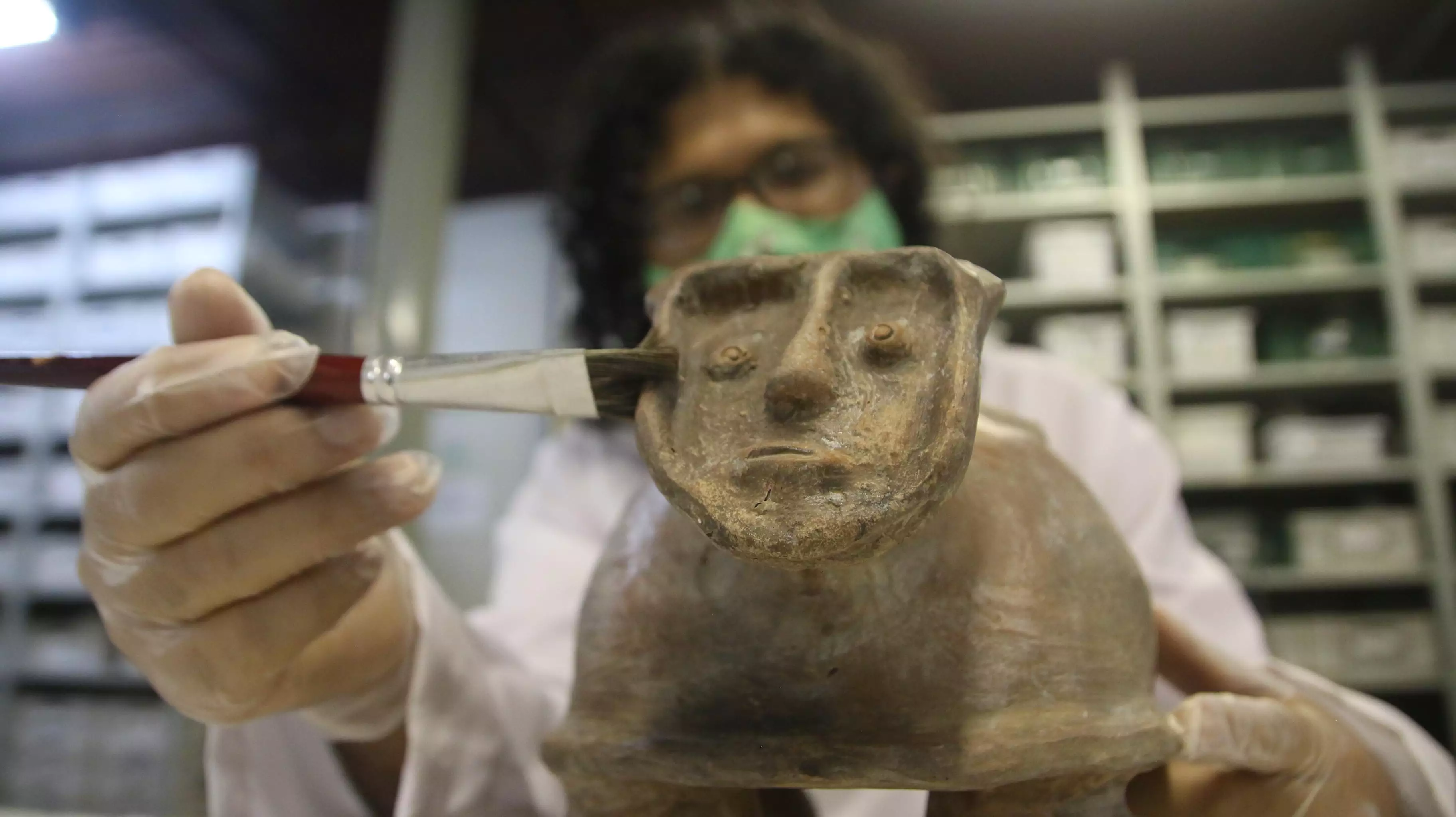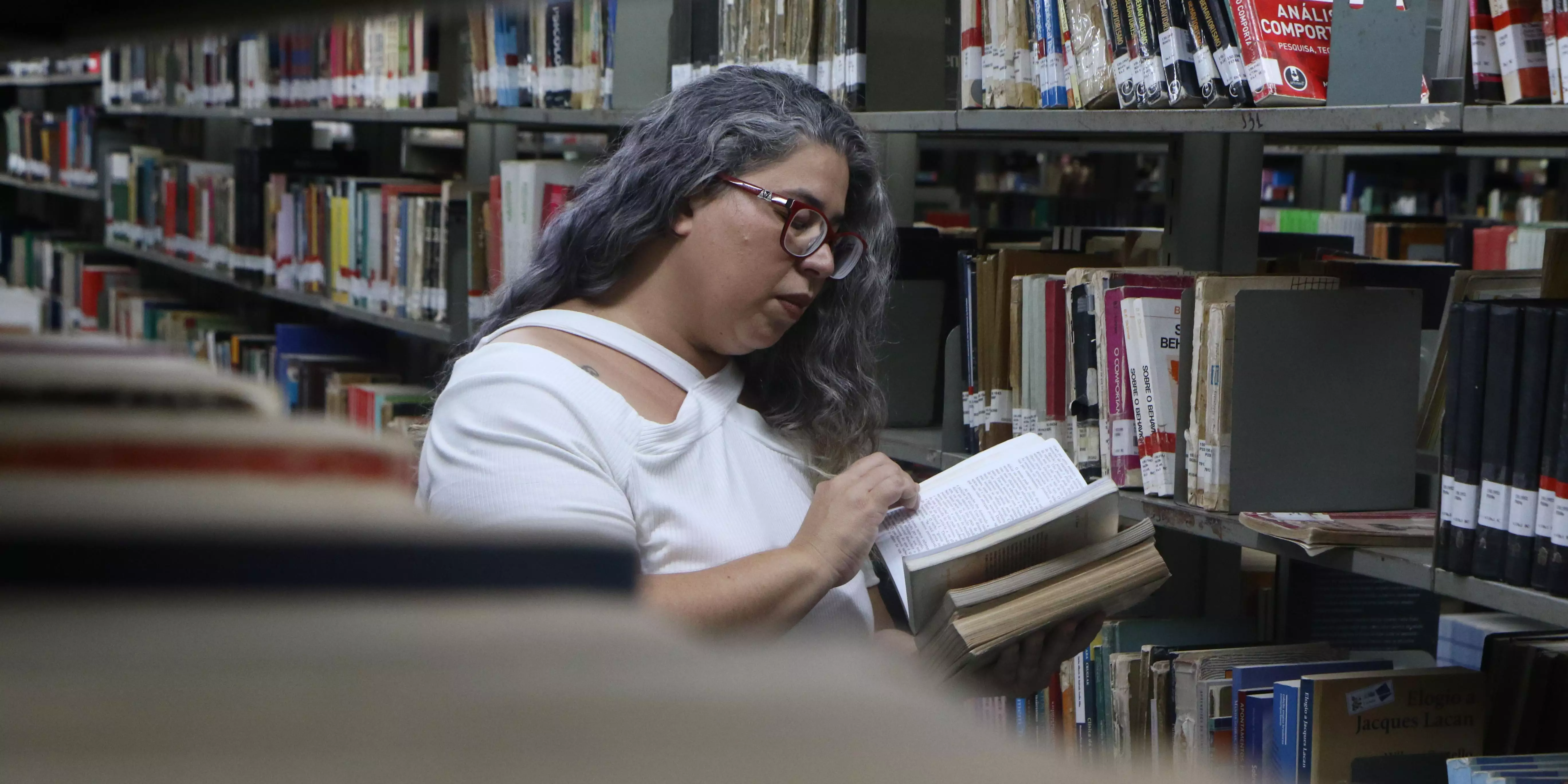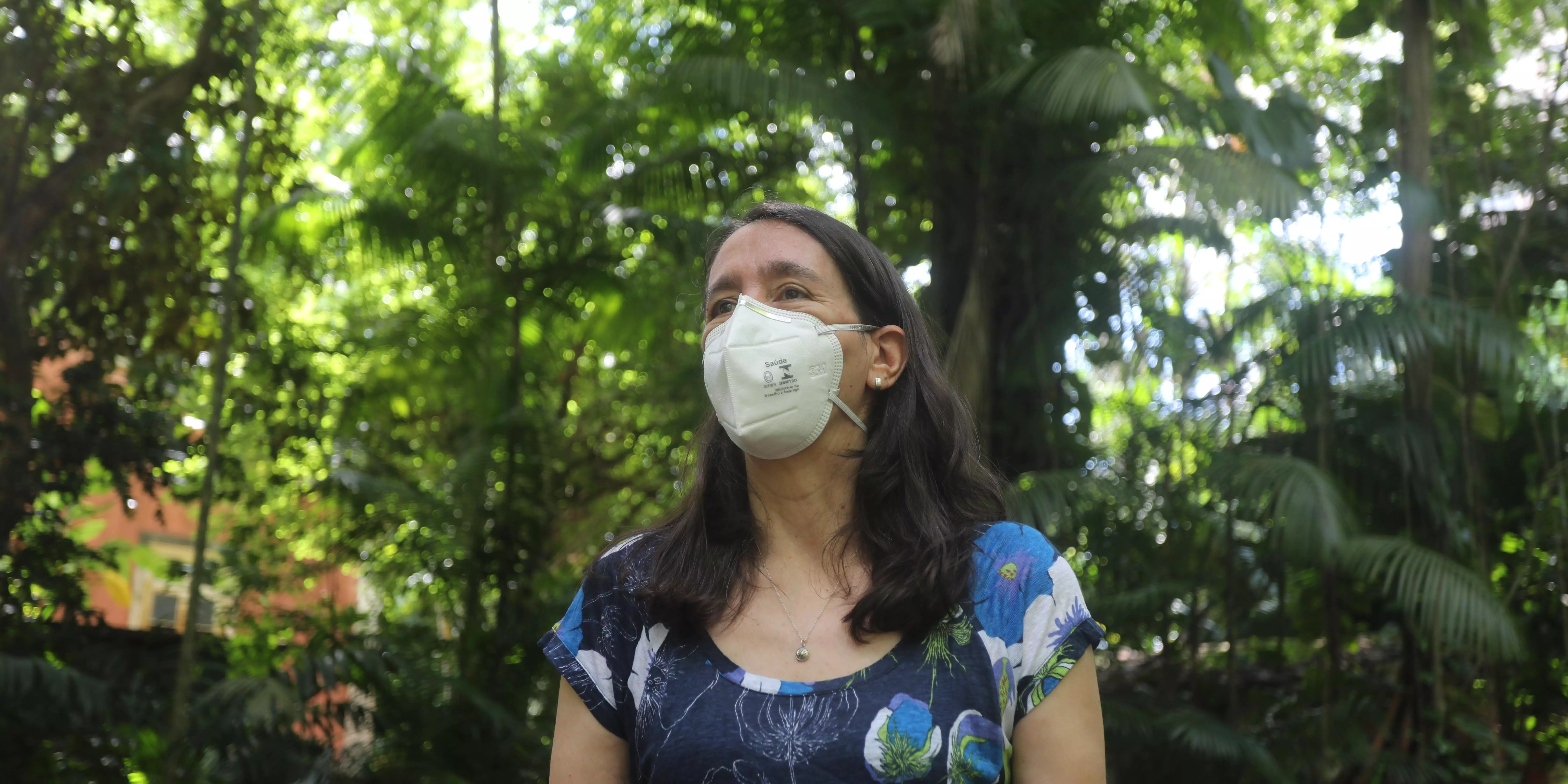The Amazon, the most diverse area on the planet, has one of the best universities in the world, the Federal University of Pará (UFPA), and also houses the oldest scientific institution in the region, the Museu Paraense Emílio Goeldi (MPEG). Despite being the scenario and motivation of hundreds of researches due to the uniqueness of its biome, local and traditional knowledges and peoples, the Amazon has a low percentage of graduate and postgraduate courses and, consequently, a low number of doctors and masters compared to other regions of the country – this is what the survey led by Centro de Gestão e Estudos Estratégicos [Center for Management and Strategic Studies] (CGEE) points out regarding the training and formal employment of masters and PhDs in Brazil.
The research reveals that, in 21 years (from 1996 to 2017), the North region was responsible for only 2.75% of the PhD holders in the country, qualifying 802 professional researchers in this category, while the total number of doctors in Brazil was 29,113 in the period. More recent data, from 2020, reveals that the Legal Amazon still exhibits the worst rate of masters and doctors, with 18.5 professionals per 100,000 inhabitants, while the country's average is 40.9. In the South region, for example, for every 100 thousand inhabitants, there are 56.2 masters and doctors.
We lost fellow researchers, talented young people, who went to other countries where they have guaranteed support for the development of their research" - Janice Muriel da Cunha, professor at UFPA.
More current figures from UFPA and MPEG show that the two institutions, together, add up to 151 graduate and postgraduate courses, including master's and doctoral degrees, and annually train 1,575 stricto sensu researchers in the region. They are professionals who, in their research lines and groups, produce 1,802 publications per year – results that reflect the persistence in scientific engagement – in the face of the challenges imposed by the inequality of investments in the country.
Unequal resources distribution is historical

For Janice Muriel da Cunha, a professor at UFPA's Institute of Coastal Studies in Bragança, who was the university's director of post-graduate studies, this disparity in qualification between the Amazon and the rest of the country is a historical construction, a consequence of a tradition of unequal division of resources: “Other regions of the country have historically received a greater proportion of universities, civil servants, courses and financial support for funding and infrastructure”, she explains.
The Federal University of Pará [UFPA] currently has 96 master's and 48 doctoral courses, with 21 of them operating in municipalities in the interior of the state. These courses qualify around 1,200 masters and 350 doctors per year. If we also consider the lato sensu programs, which include specializations and residencies, the number of graduate students at the university currently reaches 9,424 students. Janice believes that these numbers should be even higher, with the proper investment, to meet the research demands of the region and achieve equity in relation to the rest of Brazil.
“The size and complexity of the multicampus institution in the Amazon, as well as the heterogeneity of the areas of knowledge of its courses, demand an even greater proportion of teaching positions, in addition to continuous programs of scholarships and funding resources to qualify masters and doctors in equivalent proportions considering other regions of the country”, she evaluates.
For students, it is difficult to graduate; for researchers, to remain in the country
University data show that, at least in the last six years, investment in funding – the amount distributed for the payment of research grants, among other things – has been cut by 40%, which has also had a significant impact on students’ qualification, since 85% of UFPA students classify themselves as being in a situation of socioeconomic vulnerability.
My life turned into hell. I was afraid of being killed. I received terrible threats on the internet. And although deeply shocked, I resisted, and today I'm here" - Cris Guimarães, student.
One of these students is Cris Guimarães Cirino da Silva, 44 years old and Master's student in Communication. She comments she depends entirely on the amount of the research grant to persist in the course: “It's challenging. The difficulty is that you have to produce scientifically, while concerned with paying for the rent, electricity, internet and food. Not to mention transport. I am a single mother and this is a factor that makes it difficult too”, she says.
In addition to structural factors, Cris reports she has also faced attacks and death threats because of her research topic, developed in the political domain, a circumstance which would count as an additional difficulty of doing science in the Amazon, still relatively unexplored: “My life turned into hell. I was afraid of being killed. I received terrible threats on the internet. And although deeply shocked, I resisted, and today I'm here. Only by studying we will be able to have critical thinking and contribute to a better life”, she says.
Another consequence of the lack of investment in scientific production in the Amazon has been the “brain drain” – a phenomenon characterized by researchers who manage to get a graduate or post graduate degree, but leave the country: “We lost fellow researchers, talented young people, who went to other countries where the support that guaranteed support for the development of their research”, says Professor Janice.
The rector of UFPA, Emmanuel Zagury Tourinho, refers to the “brain drain” phenomenon as a practice that, in his view, can be observed across the country in general: “There are many qualified researchers who do not find the opportunity to work in Brazil and who are recruited to work in foreign countries institutions, which offer good conditions. They hardly ever return to Brazil”, he explains.
Tourinho emphasizes that this move represents a great loss for the country, which he defines as a contradiction: “We make a huge investment to prepare this intelligence contingent that can help us save Brazil from this critical situation and, when these researchers are finally ready, we end up delivering them to another country to benefit from their qualification. This scenario can only change if we have an environment of greater investment in science and technology”, he says.
Conviction about the importance of science has sustained researchers
Despite facing huge obstacles, UFPA has accomplished important achievements, such as being amongst the best universities in the world, according to the QS World University Ranking 2023, published in June this year, and the climb of 75 positions in the SCImago Institutions Rankings (SIR 2022), responsible for the ranking of scientific influence of educational and research institutions by analyzing the impact of scientific production on international databases.

According to Tourinho, these results ensue from the collective efforts of the academic community, motivated by the strong belief in the production of knowledge “about” and “in” the Amazon as one of the only ways capable of changing the situation that he considers, today, as dramatic: “In six years, UFPA's publication in scientific journals of world reference has raised by 70% and the impact of this production has increased by 150% in the same period. This result reflects the effort and dedication of the academic community and of institutional policies that stimulate and support scientific initiatives. It also shows that we produce significant amount of the highest quality science – accounting for major investments in this science generation site installed in the Amazon”, says the rector.
For the student Cris Guimarães Cirino da Silva, it is due to the love for science and the conviction about education being the only hope for a better future that she perseveres and plans to continue in her academic career: “I intend to contribute with my research “about” the Amazon and “for” the Amazon, because I am from Pará and I am a woman in a region full of competent people, although not assisted by the past governments. My goal is to attend a post doctorate program outside Brazil, but to return here and to put into practice what I will possibly learn abroad”.
At Goeldi museum, lack of resources impacts results
In addition to the development effort employed by UFPA, the Amazon region also has another important research center based in Belém, Pará – Museu Paraense Emílio Goeldi (MPEG), an institution with 155 years of existence and a pioneer in scientific studies of the natural and sociocultural systems of the Amazon region, which suffers not only with lack of financial and structural support, but also with the scarcity of human resources to continue to exist.
Offering seven postgraduate programs, the institution qualifies around 25 masters and PhDs per year, who produce approximately 300 publications yearly, besides 100 running projects. But the results could be much better with the appropriate availability of resources, says the director of MPEG, Ana Luisa Kerti Mangabeira Albernaz. “The lack of resources implies in laboratories outage of important equipment or in no maintenance of the existing machines, difficulty in obtaining materials for the operation of facilities and laboratory processes. There is also insufficient budget to carry out field research, which is often the basis for generating new information. This problem reduces the researcher's competitive advantage in the region in analogy to other regions that are better assisted in terms of investigation resources”, she explains.
Institution has few researchers
Due to so many limitations, the reality of research activities at the Emílio Goeldi Museum results in lack of labor force, considering that more groups could be created if there were enough incentive to support a greater number of researchers. Concurrently, the institution has suffered with the reduction of important research areas, justified by the accentuated staff shrinkage (less than 50 of the 200 employees are researchers). “We’ve lost researchers in the area of forest management and fishing, for example. It would be essential that new leaderships could be absorbed to ensure scientific contribution in discussions on public policies related to the use of these resources. Furthermore, many other important production chains for the Amazon, such as açaí, andiroba, cocoa, palm oil, etc., need more attention and more researchers dedicated to them”, informs Ana Luisa.

In this scenario, other areas of great interest to the Amazon are impacted by the lack of professionals, as Ana Luisa lists: potential for discovering new biodiversity assets, development of environmental recovery technologies (necessary for the recovery of water sources, for example), income generation and quality of life for local populations. “These are areas that have always been within the institution's radar, but with less and less potential to be developed as the number of researchers is so reduced”.
We saw several talents who were interested in continuing working in the Amazon leave due to the lack of job opportunities" - Ana Luisa Kerti Mangabeira Albernaz, director of MPEG.
Despite the demand, job opportunities are rare
As well as the “brain drain” phenomenon, mentioned by Emmanuel Tourinho, the director of the Emílio Goeldi Museum describes the increasing difficulty of pursuing a career in the research area, with a raising number of candidates for the opportunities that are opened in the institution: “Many of the recently opened positions have had more than 30 candidates. This number shows that there are qualified personnel interested in working in the region, but that they do not find an opportunity. Thus, even those who made all the effort to graduate sometimes cannot stay in their careers or in the region, so they seek other courses or move to regions with more opportunities. At the Goeldi Museum, we saw several talents who were interested in continuing working in the Amazon leave due to the lack of job opportunities”, she reports.
Difficulties collaborate to “scientific colonialism”
Knowledge produced about the Amazon by researchers from other regions, even from other countries, who know little, or “know from a distance” the reality of the region, is one of the epistemological problems known as “scientific colonialism”. This phenomenon has been increasingly discussed in the academic space – highlights Ana Luisa Albernaz. She says that the great risk is to have researches that propose limited solutions to complex problems that only those who deeply know the Amazon could provide:
“Most extrinsic solutions take into account only the economic aspect and, in some cases, the environmental aspect, but most of the time they ignore the sociocultural aspects – decisive ones to promote a more harmonious development and the maintenance of the quality of life, not only for the local populations, but for the whole world, due to its importance for climate regulation”, explains the researcher.

To reverse this scenario and try to change this reality, Ana Luisa states that a more balanced distribution of resources for education and scientific research in the Amazon needs to be started as soon as possible: “The main path is to have investment of higher magnitude compared to the existing ones to the region today. This funding provision would allow the development of better solutions for the future of the Amazon and better use of its enormous potential”.